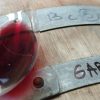In recent years, supermarket aisles have filled up with products labelled as being apt for for consumption by people who identify as vegan. The movement has spread to Argentine wine with more and more wineries looking to meet the growth demand of vegan certified wines: in the United States the proportion of vegans in the population has grown from 1% in 2014 to 6% today while in Argentina the company Kantar Insights Division estimates that 9% of the population is either vegan (meaning they consume no animal products) or vegetarian (meaning they don’t consume meat).
The Vegan certified wines of Argentina
“There is a movement of people who believe passionately that animals deserve more respect in the sense that they should not be used for experiments, as food or in any other way that affects their wellbeing. We want to support that belief and so we have obtained vegan certification,” says Ernesto Catena, whose wineries Animal Organic Wines and Stella Crinita offer a wide range of organic wines. “Across the world, there is increasing demand for wines produced in a way that respects the environment and avoids the exploitation of animals,” adds Martín Kaiser, Assistant Manager of Viticulture and Oenology at the winery Doña Paula, all of whose wines are certified.
From the point of view of the Argentine wine industry, the increasing number of vegan consumers represents an opportunity to grow and diversify and producers both large and small are getting on board. Rogelio Rabino, Head of Viticulture and Oenology at Kaiken Wines, whose wines are also certified, says: “In some markets, it’s not just a requirement, it can also be an advantage, allowing us to reach spaces that only stock organic wines.”
But what is a vegan wine? Why would wine, which is made from grapes, ever not be vegan? It might not seem to contain animal products, but proteins that originally came from animals do sometimes play a part in the winemaking process. What are the non-vegan ingredients in your wine? “Basically, during the clarification process, egg whites, milk (and sometimes derivatives from fish) are often used to eliminate particles after the alcoholic fermentation and before bottling,” says Nancy Johnson, brand ambassador for Santa Julia winery, which recently certified over 40 of its labels.
Proteins that originally came from animals are replaced in vegan certified wines by clays such as bentonite or cellulose sheets, which perform the same function when filtering the wine. There is a also a wider conceptual approach as well: “We don’t use animals to work the land or at any other stage of the winemaking process.”
Certification
As in many other fields, to obtain proof that animal products were not used, professional certification is required. “At Santa Julia we obtained certification from VEG Argentina (Liaf Control SRL), the first certified label in the country, which tests the raw materials, additives and catalysts used in the production process to verify that they do not come from animals or animal derivatives. The evaluation process,” says Johnson, “consists of an inspection by LIAF professionals and if no breaches of the requirements are found, vegan certification is granted.”
Other bodies also provide this certification. For instance, The Vegan Society (a UK based organization), certified Kaiken’s wines.
The question then arises of whether there’s any difference – in terms of aroma, flavour or texture – between vegan certified wines and non-vegan wines. Many of the experts consulted detect none, but some disagree: “In the hypothetical case that one could make two wines that are exactly the same other than the use of clarifiers (from animals) in one, the resulting wines might be less tannic, a little simpler and more limpid,” says Facundo Bonamaizón, Agricultural Engineer at Bodega Chakana, all of whose wines are vegan.
“I think that the main difference is the purity with which it’s expressed, which isn’t to say that vegan wines are impure,” says Rodrigo Serrano Alou, the Oenologist at Domaine Bousquet, 100% of whose wines are certified. “Because the animal derivatives are used for clarification, they remove a lot of elements. By not using them, wines preserve some that the non-vegan wines miss out on.”
“The difference in flavour is very subtle, if there’s any at all,” says Catena. “I think that better care is likely to be taken over a vegan wine, with greater respect for nature. I’d like to think that a vegan winemaker is someone who protects the land and works with more love and respect than average. And this would be reflected in a more harmonious and subtle wine. But the effect of a clear conscience on flavour is more a moral issue than an organoleptic one.”



